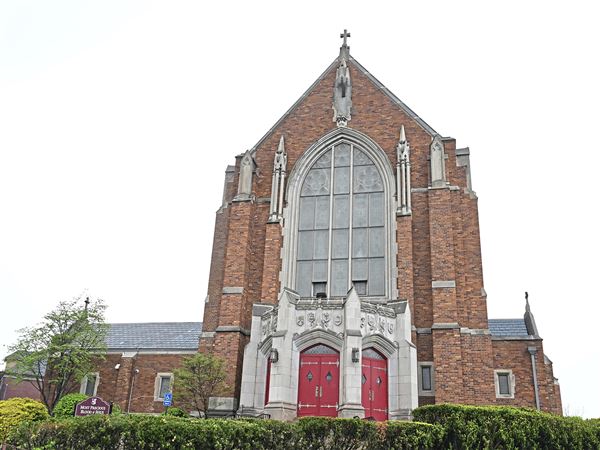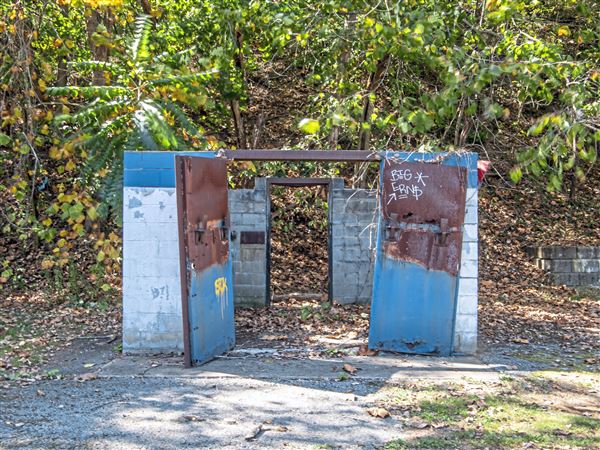HARRISBURG — After years of being praised as “heroes” during the COVID-19 pandemic, long-term care workers are back at the state Capitol to sound the alarm that there is another crisis on its way.
Long-term care employees from the state’s largest health care union and nursing home administrators marched in Harrisburg in two separate rallies this week, warning the Legislature that if lawmakers don’t increase funding for nursing homes these facilities may be forced to close and would leave Pennsylvania’s elderly population without enough caretakers.
Long-term care facilities were some of the hardest hit during the COVID-19 pandemic. When the virus got into nursing homes — where the most vulnerable populations lived — it killed thousands of Pennsylvania seniors.
Advocates from SEIU-PA and the Pennsylvania Health Care Association hosted rallies at the state Capitol on Tuesday and Wednesday to call on the Legislature to increase funding for its Medicaid reimbursement by $294 million.
Lawmakers haven’t increased the state’s Medicaid reimbursement rate since 2014, keeping it set to about $200 per person, per day. This is the rate the state pays toward a resident’s care for those who otherwise could not afford it.
Meanwhile, the cost of care has risen to almost $250 per resident per day — only covering about 80% of a resident’s daily care.
“Our industry has been struggling for many years and the pandemic has exacerbated that struggle,” said Aaron Praetzel, the regional director of operations for Pennsylvania at HCF Management, after the health care association’s rally on Tuesday.
HCF Management owns seven nursing homes in western Pennsylvania, including Hempfield Manor in Greensburg. Approximately 80% of its residents are reliant on Medicaid, Mr. Praetzel said.
“We’re at a critical level that something drastic needs to be done to help sustain the industry or our seniors will be left with no one to care for them,” Mr. Praetzel added. “Being praised as heroes has been a good feeling, but words say one thing, and the actions reflect another.”
Since the start of the COVID-19 pandemic, 11 nursing homes have closed across the state.
What’s more: Pennsylvania has one of the oldest populations in the country, and nursing home providers have had to turn seniors away because they don’t have enough staff to care for them.
SEIU members from across the state reported worsening conditions in their facilities, as nursing homes struggle with staffing shortages across departments. This is worsened by noncompetitive wages, as industries across the country continue to raise their wages to try to meet their own staffing shortages.
The result? A lesser quality of care, across all parts of a resident’s life — even a shortage on clean bed sheets or getting served cold food, union members said.
“It’s not just people spouting they want more money,” said Karen Hipple, a nurse at Oil City Health & Rehab, outside Wednesday’s rally. “They want the patients to be taken care of, for the residents to receive proper care. And that’s everything down to the linen.”
“There’s just no way they can continue at the present status of one [certified nurse assistant] taking care of 20, 30 people,” Ms. Hipple added.
In total, long-term care advocates are asking the state to increase the state’s Medicaid reimbursement by $294 million. The Pennsylvania Health Care Association is also asking for a $75 million allocation in one-time federal dollars from President Joe Biden’s federal COVID-19 stimulus package to help long-term care facilities recruit and retain employees.
Zach Shamberg, the president and CEO of the health care group, said legislative leaders and Gov. Tom Wolf’s office have all said this issue is a priority for them going into the 2022-23 budget negotiations. Pennsylvania has a positive fiscal outlook for the rest of this budget year, with higher-than-projected revenue returns and billions in federal stimulus funds still in its coffers — although Republican lawmakers have been cautious to spend it in fears of an economic downturn.
“There’s a real recognition that this year is the year that we can make that long-term investment in long-term care,” Mr. Shamberg added. “And it has to be done this year, given what we’re seeing across the state and the challenges we’re facing.”
SEIU members, however, also want to ensure that whatever investment is made into long-term care is focused on bedside care — and facility owners are held accountable for how they spend that money.
“The accountability is huge,” Ms. Hipple said. “[Lawmakers] have got to make sure [nursing home owners] are accountable for all the money they’re given.”
Gillian McGoldrick; gmcgoldrick@post-gazette.com or on Twitter @gill_mcgoldrick.
First Published: May 26, 2022, 12:57 a.m.


















